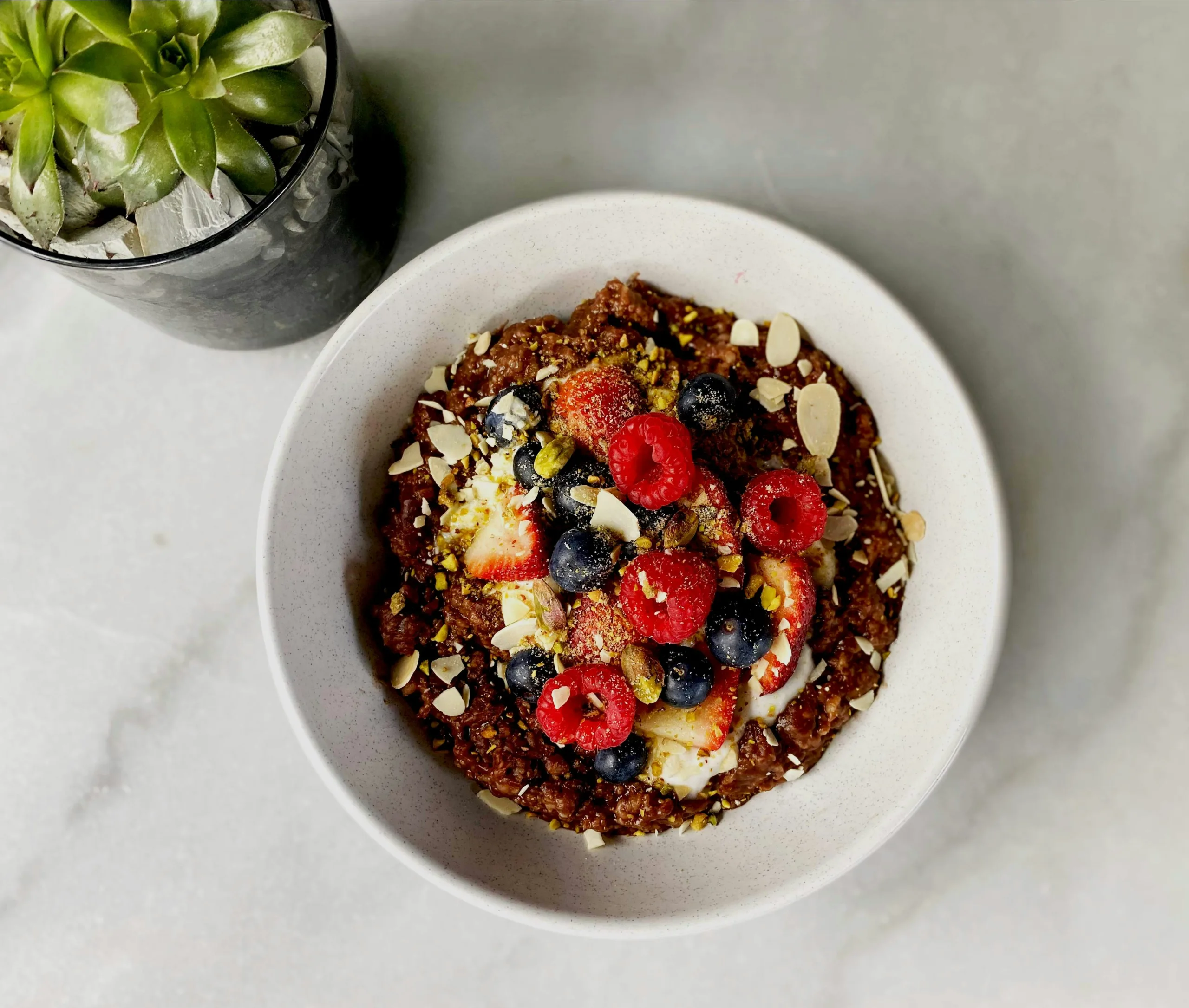We often hear about the importance of a healthy gut, but did you know that gut health can also have a significant impact on your stress levels?
Let’s explore the fascinating relationship between gut health and stress and go deeper into the science behind it. (You know how we love our science here at Nutritious Life!) We’ll also learn how to optimize your gut for a calmer mind. Sounds like a win-win to us.
Gut Health and Neurotransmitters
The gut is often referred to as our “second brain” because it produces a significant amount of neurotransmitters, including serotonin, dopamine, and GABA. These neurotransmitters, also known as the feel-good chemicals, play a crucial role in regulating mood and emotions. What’s more, about 90% of serotonin, a key neurotransmitter responsible for feelings of happiness and well-being, is produced in the gut. An imbalance in gut bacteria can disrupt the production of these neurotransmitters, leading to increased stress and anxiety levels.
Gut-Brain Communication
The gut and the brain are in constant communication through the vagus nerve, a major pathway connecting the two. This communication allows the gut to send signals to the brain, influencing our emotions and stress responses. The gut microbiota, a diverse community of microorganisms chillin’ in our digestive system, plays a vital role in this gut-brain communication. A healthy gut microbiota promotes positive gut-brain signaling, leading to better stress management and emotional well-being.
RELATED: Should You Take Probiotics?
Nurturing Your Gut for a Calmer Mind
Probiotics and Fermented Foods
Incorporating probiotics and fermented foods into your diet can help support a healthy gut microbiota. Probiotics are beneficial bacteria that can help restore the balance of gut flora. Fermented foods like yogurt, kimchi, kombucha, and miso are rich in probiotics and can support a thriving gut ecosystem.
Fiber-Rich Diet
Consuming a diet high in fiber is essential for gut health. Fiber acts as a prebiotic, providing nourishment for beneficial gut bacteria. It promotes regular bowel movements, prevents constipation, and helps maintain a healthy gut environment. Include plenty of fruits, vegetables, whole grains, and legumes in your diet to ensure an adequate fiber intake.
Reduce Sugar and Processed Foods
High sugar and processed foods can disrupt the balance of gut bacteria and contribute to inflammation in the gut, which can trigger stress responses in the body. Remember to always Eat Empowered and choose whole, unprocessed foods that are rich in nutrients and support a healthy gut environment.
RELATED: Sugar Cravings: Why They Happen and How to Curb Them
Stimulate the Vagus Nerve
As we learned above, the vagus nerve plays a major role in the gut-brain connection. s the longest cranial nerve in your body, connecting your brain to various organs, including the heart, lungs, and digestive system. When activated, it triggers the relaxation response, reducing heart rate, blood pressure, and inflammation. This, in turn, helps to alleviate stress and anxiety.
So, how can you stimulate the vagus nerve? Try these techniques:
1. Deep Breathing: Slow, deep breaths can activate the vagus nerve and promote relaxation. Practice diaphragmatic breathing by inhaling deeply through your nose, allowing your belly to rise, and exhaling slowly through your mouth.
2. Meditation and Mindfulness: Engaging in regular meditation or mindfulness practices can activate the vagus nerve and calm your mind. Focus on the present moment, observe your thoughts without judgment, and cultivate a sense of inner peace.
3. Cold Exposure: Taking cold showers or immersing your face in cold water can stimulate the vagus nerve. The shock of cold triggers a response in your body that activates the relaxation system.
4. Exercise: Regular physical activity, such as yoga, tai chi, or aerobic exercises, can stimulate the vagus nerve and reduce stress.
5. Singing or Chanting: Engaging in activities that involve vocalization, such as singing or chanting, can stimulate the vagus nerve. These practices also help you to be in the moment, regulate your breathing, and promote relaxation.
When we prioritize gut health, we can positively impact our stress levels and overall well-being. Nurturing our gut through a balanced diet, incorporating probiotics and fermented foods, and stimulating our vagus nerve can lead to a calmer mind and a healthier, happier life. Understanding the intricate relationship between gut health and stress empowers us to take control of our well-being and live our lives to the fullest. So, start nurturing your gut today, remember to live all 8 pillars of a Nutritious Life, and experience the transformative power of a calmer mind.
Take Your Hunger for Wellness Knowledge to the Next Level
If you love learning about how gut health affects total wellness and how to support a healthy gut through nutrition and the 8 pillars of a Nutritious Life, think of how awesome it would be to share this knowledge as a side hustle… or even your full-time job.
Our Become a Nutrition Coach certification course gives you a solid foundation in nutrition science, plus techniques for coaching clients and growing your new business—all within a community of passionate, like-minded friends. It’s the perfect way to inspire the next generation of healthier people all across the globe.
Request a sneak peek of the Become a Nutrition Coach program here and see how you can put your passion for wellness to work.
(Image: Unsplash)





























